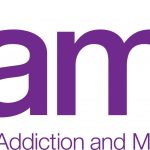Newly released data on COVID-19 cases reported in Toronto suggest people who identify as belonging to a racialized group or living in low-income households are disproportionately affected by the novel coronavirus.
Toronto Public Health says data collected from people infected with COVID-19 and who voluntarily answered socio-demographic questions found 83 per cent identified with a racialized group.
That’s compared with the 52 per cent of Toronto residents overall who identify as such.
The data also show 51 per cent of reported COVID-19 cases in Toronto were people living in households considered to be low-income, compared with 30 per cent of the population that meets the same definition.
More than a quarter — 27 per cent — of cases were in people living in households with five or more people.
The data were collected between May 20 and July 16, and do not include people who tested positive in long-term care homes, or any information related to Indigenous identity.
Officials say the study will help inform public health decisions, adding the city has begun working with organizations that represent and serve communities over-represented in COVID-19 cases.
“Learning more about the impacts COVID-19 is having on our residents will not only allow us to respond in the interim, but in the long term we can develop better services, programs and policies that address these findings and future challenges we may face,” Mayor John Tory said.
This report by The Canadian Press was first published on July 30, 2020.
The Canadian Press













